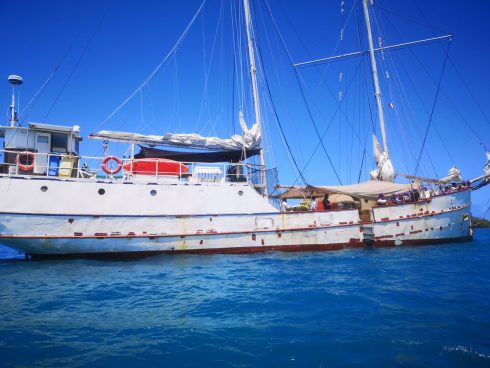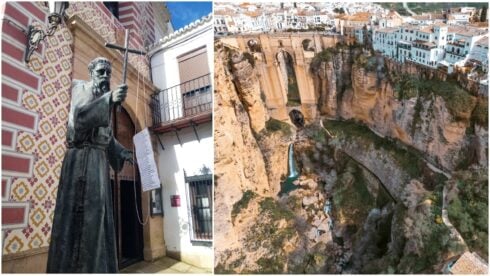ON the anniversary of the fall of Tenochtitlan and the start of Spain’s rule in Mexico, a group of indigenous Zapatistas have set sail from South America to Spain on a mission of peace and protest.
Last Sunday, The rusty sailboat La Montaña embarked on the 7,500 kilometre journey with two men and five women from the port of Isla Mujeres in Mexico.
Led by Subcomandante Galeano, former Zapatista revolutionary and spokesman, the team hopes to track the same route that the original conquistadores took 500 years ago.
But this time the mission is one of ‘solidarity and rebellion’ rather than a hostile invasion as was the case in 1521.
“We are embarking on an odyssey that has everything to do with defiance and nothing to do with a rebuke” said Subcomandante Moisés, fellow Zapatista leader.
La Montaña‘s plan is to arrive in the northern Spanish city of Vigo mid August and from there, begin a peaceful tour of Europe spreading the word of Mexico’s anti-capitalism factions and celebrate the independence of Mexico from the Spanish.
The group also plans to meet with other activist group to discuss ‘the inequality that comes from the capitalist socio-economic system’.

Moisés reiterates that the tour will be a trip of peaceful rebellion, and that if they are allowed to disembark in Vigo, there will be many parties, dancing and Cumbia songs.
If they are not allowed to enter Vigo, they plan to unfurl a banner with the words Wake Up!
A statement from the Vigo city council claims that they have not been made aware of the new arrivals and currently there are no plans to formally welcome them when they arrive.
The Zapatistas represent the Zapatista National Liberation Army, an independent rebellion group that is strongly anti-capitalist and controls a large area of territory in the Chiapas region of Mexico.
Traditionally donned in black balaclavas and traditional military dress, the group rose to prominence in 1994 when the rose to oppose the North American Free Trade Agreement.
The groups trans-Atlantic voyage will take place 500 years after Spanish Conquistadores invaded and conquered Tenochtitlan, what would eventually become Mexico City.
On August 13, 1521, an army of Spanish warriors led by Columbian warleader Xicotencatl the Younger and warriors from the Tlaxcalan forces from Spanish ruled Columbia, invaded the Mexican capital.
The Tlaxcalan army captured Cuauhtémoc, leader of Tenochtitlan at the time and thus began 300 years of Spanish rule in South America.
Mexico has previously asked for an official apology from Spain in 2019, when Mexican leader López Obrador wrote a formal request to King Felipe to disavow the actions of 500 years ago.
However Spain refused the request, claiming that ‘the crimes of 500 years ago cannot be held to modern standards.’
“Our two countries have always understood a mutual respect and appreciation of the event of 1521, and we have learnt to remember it without anger.” said the Spanish crown at the time.
Click here to read more Spain News from The Olive Press.








